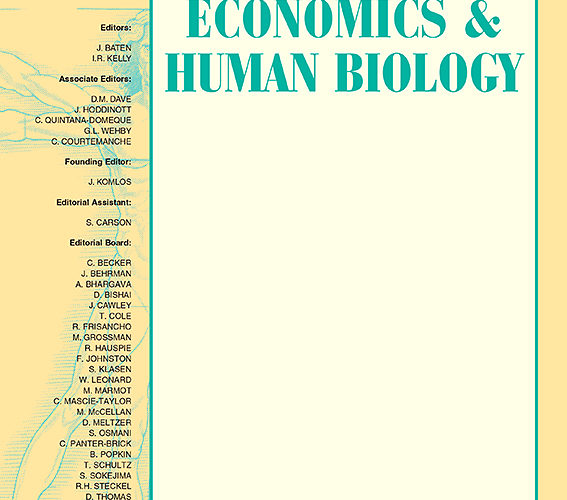
Hajdu, T., Hajdu, G. [2018]: Smoking ban and health at birth: Evidence from Hungary. Economics and Human Biology, 30, 37-47.
https://www.sciencedirect.com/science/article/pii/S1570677X18300194
Newborns at the bottom of the fetal health endowment distribution benefit more.
In 2012, smoking restrictions were extended to hospitality venues in Hungary. Women working in bars and restaurants were primarily affected by the intervention. In this research, we analyze the effect of this smoking ban on the outcomes of their pregnancies. Using individual live birth, fetal loss, and infant mortality registry data, we examine the probability of live birth, indicators of health at birth, and the probability of death in the first year of life. We apply a difference-in-differences framework and show that the smoking ban has improved health at birth. We observed birth weight to increase by 56 g (95% CI: 4.2 to 106.8) and gestation length by 0.19 weeks (95% CI: 0.02 to 0.36). Due to the ban, the probability of being born with very low and low birth weight has decreased by 1.2 and 2.2 percentage points, respectively (95% CI: −0.2 to −2.2 and 0.06 to −4.4), and we see a 0.9 percentage points reduction in the chance of being born very preterm (95% CI: −0.03 to −1.9). We also observe a decrease in the probability of being born with a low Ponderal index (decrease of 4.1 percentage points, 95% CI: −0.7 to −7.5). Performing a series of robustness and placebo tests, we provide evidence that supports the causal interpretation of our results. We also show that the ban was more beneficial for newborns of parents with low educational attainment and at the bottom of the fetal health endowment distribution.
Nem található esemény a közeljövőben.
A KRTK Közgazdaság-tudományi Intézet teljesítményéről A KRTK KTI a RePEc/IDEAS rangsorában, amely a világ közgazdaság-tudományi tanszékeit és intézeteit rangsorolja publikációs teljesítményük alapján, a legjobb ... Read More »

Tisztelt Kollégák! Tudományos kutatóként, intézeti vezetőként egész életünkben a kutatói szabadság és felelősség elve vezetett bennünket. Meggyőződésünk, hogy a tudomány csak akkor érhet el ... Read More »

Srí Lanka: a 2022-es gazdasági válság leckéje – A. Krueger Lessons from Sri Lanka Anne O. Krueger Jul 25, 2022 – Project Syndicate ... Read More »

A permanens válság korában élünk – J. Meadway We’re living in an age of permanent crisis – let’s stop planning for a ‘return ... Read More »

A 2021 végén, illetve 2022 elején tapaszalt 6, illetve 7%-os cserearányromlás brutális reáljövedelem-kivonást jelentett a magyar gazdaságból. A külső egyensúly alakulásával foglalkozó elemzések többnyire ... Read More »
